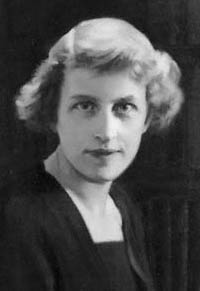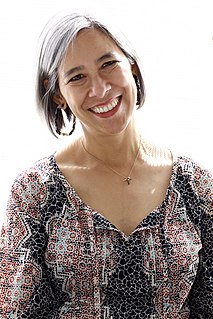A Quote by Manuel Puig
For someone who writes fiction, in order to activate the imagination and the unconscious, it's essential to be free.
Quote Topics
Related Quotes
The essential fault of surrealism is that it invents without discovering. To make a clam play an accordion is to invent not to discover. The observation of the unconscious, so far as it can be observed, should reveal things of which we have previously been unconscious, not the familiar things of which we have been conscious plus imagination.
This fact was something I also learned from this first novel that I needed personal experience to invent, to fantasize, to create fiction, but at the same time I needed some distance, some perspective on this experience in order to feel free enough to manipulate it and to transform it into fiction. If the experience is very close, I feel inhibited. I have never been able to write fiction about something that has happened to me recently. If the closeness of the real reality, of living reality, is to have a persuasive effect on my imagination, I need a distance, a distance in time and in space.
One writes not to be read but to breathe...one writes to think, to pray, to analyze. One writes to clear one's mind, to dissipate one's fears, to face one's doubts, to look at one's mistakes--in order to retrieve them. One writes to capture and crystallize one's joy, but also to disperse one's gloom. Like prayer--you go to it in sorrow more than joy, for help, a road back to 'grace'.
There are mythologies that are scattered, broken up, all around us. We stand on what I call a terminal moraine of shattered mythic systems that once structured society. They can be detected all around us. You can select any of these fragments that activate your imagination for your own use. Let it help shape your own relationship to the unconscious system out of which these symbols have come.
I write my first draft by hand, at least for fiction. For non-fiction, I write happily on a computer, but for fiction I write by hand, because I'm trying to achieve a kind of thoughtless state, or an unconscious instinctive state. I'm not reading what I write when I wrote. It's an unconscious outpouring that's a mess, and it's many, many steps away from anything anyone would want to read. Creating that way seems to generate the most interesting material for me to work with, though.
Build pockets of stillness into your life. Meditate. Go for walks. Ride your bike going nowhere in particular. There is a creative purpose to daydreaming, even to boredom. The best ideas come to us when we stop actively trying to coax the muse into manifesting and let the fragments of experience float around our unconscious mind in order to click into new combinations. Without this essential stage of unconscious processing, the entire flow of the creative process is broken.
I want to be remembered as an imaginer, someone who used his imagination as a way to journey beyond the limits of self, beyond the limits of flesh and blood, beyond the limits of even perhaps life itself, in order to discover some sense of order in what appears to be a disordered universe. I'm using my imagination to find meaning, both for myself and, I hope, for my readers."-Clive Barker
Science fiction, as I mentioned before, writes about what is neither impossible nor possible; the fact is that, when the question of possibility comes up in science fiction, the author can only reply that nobody knows. We haven't been there yet. We haven't discovered that yet. Science fiction hasn't happened.



































